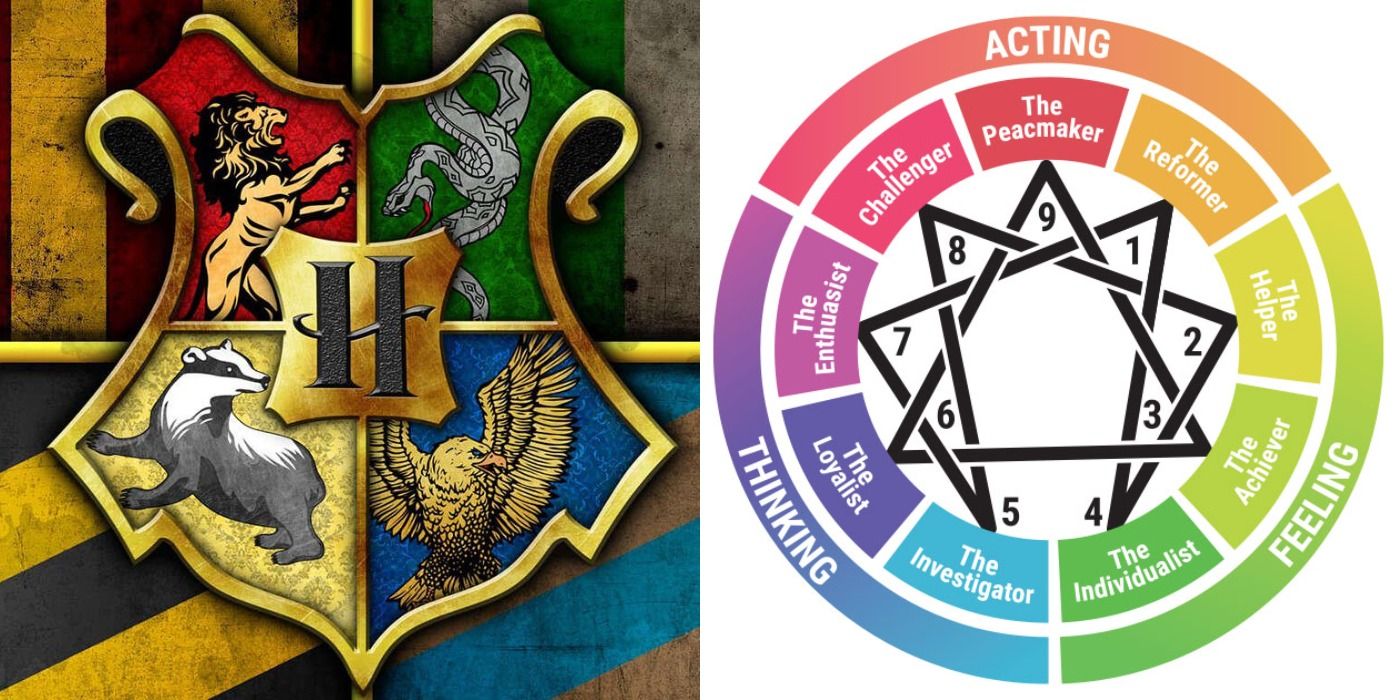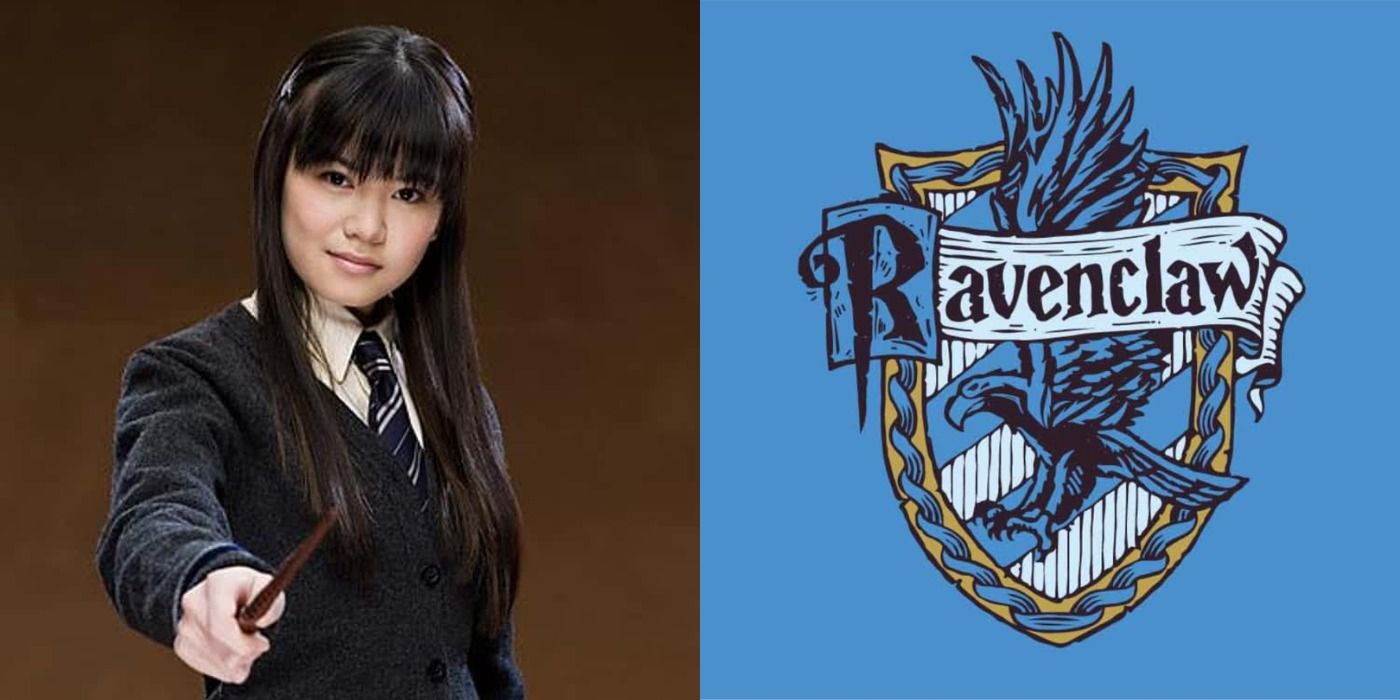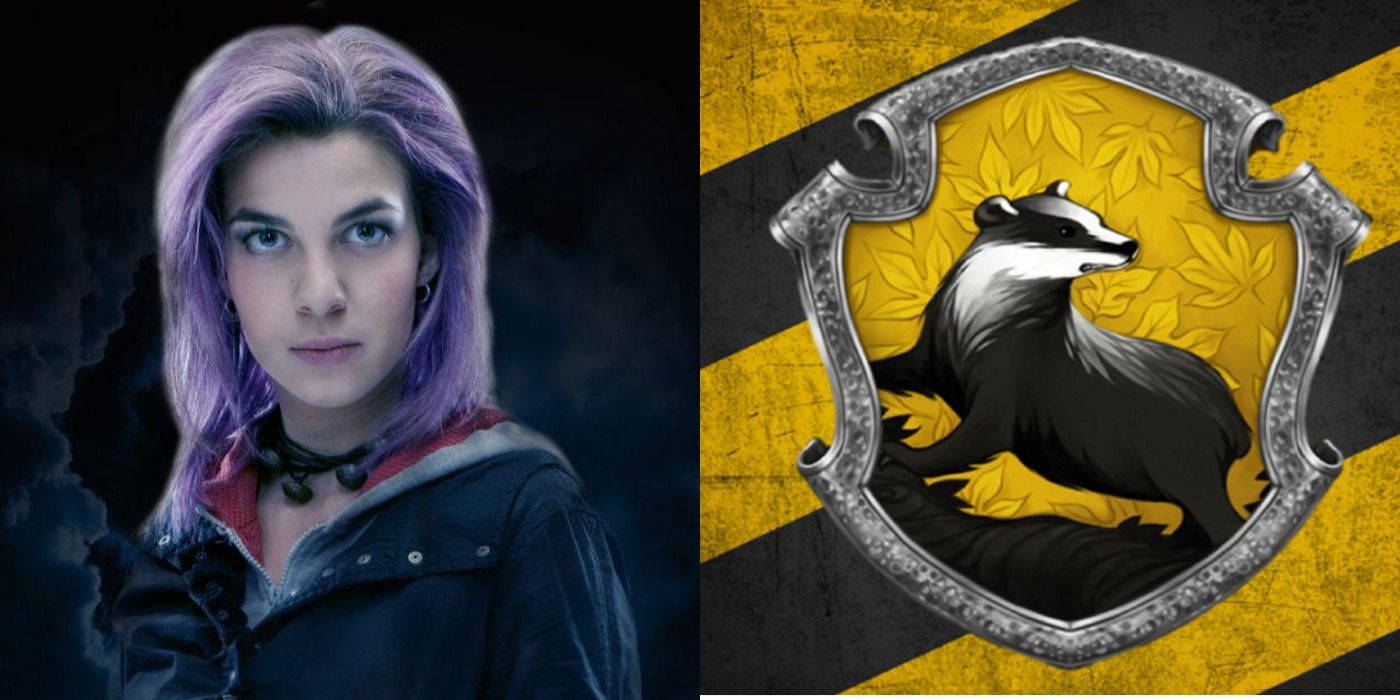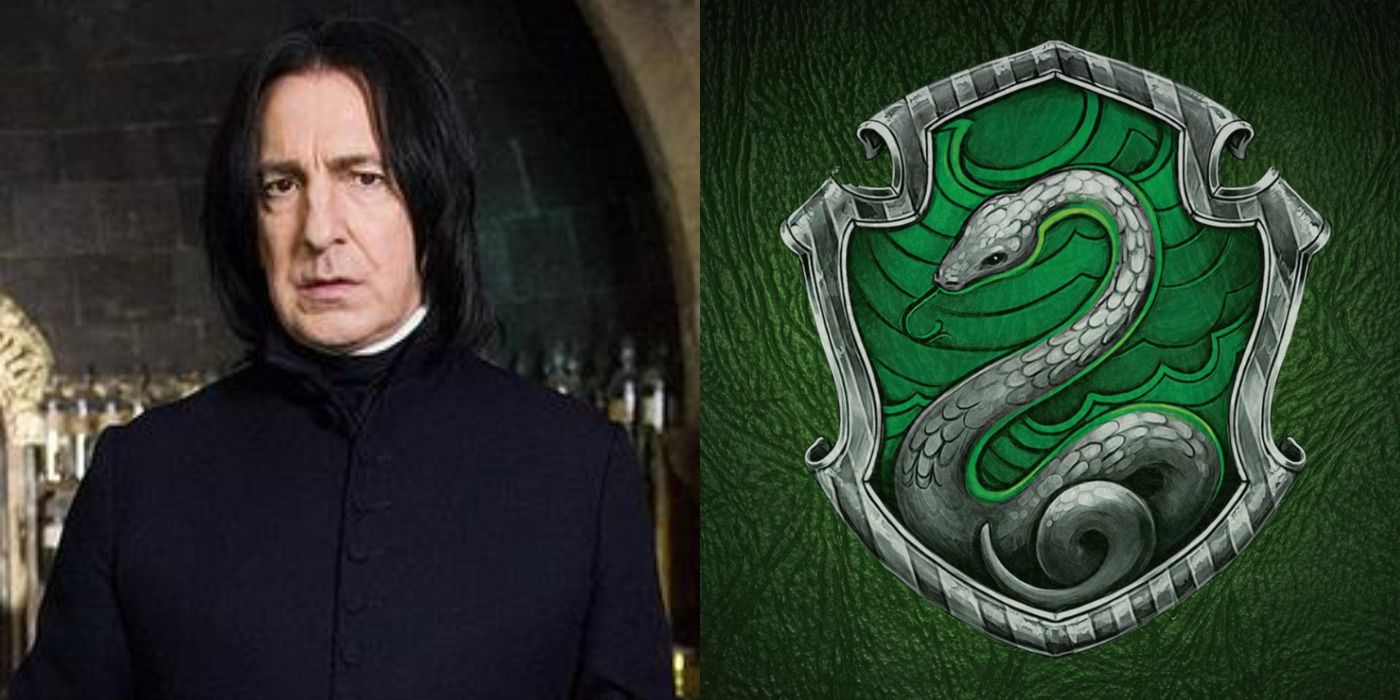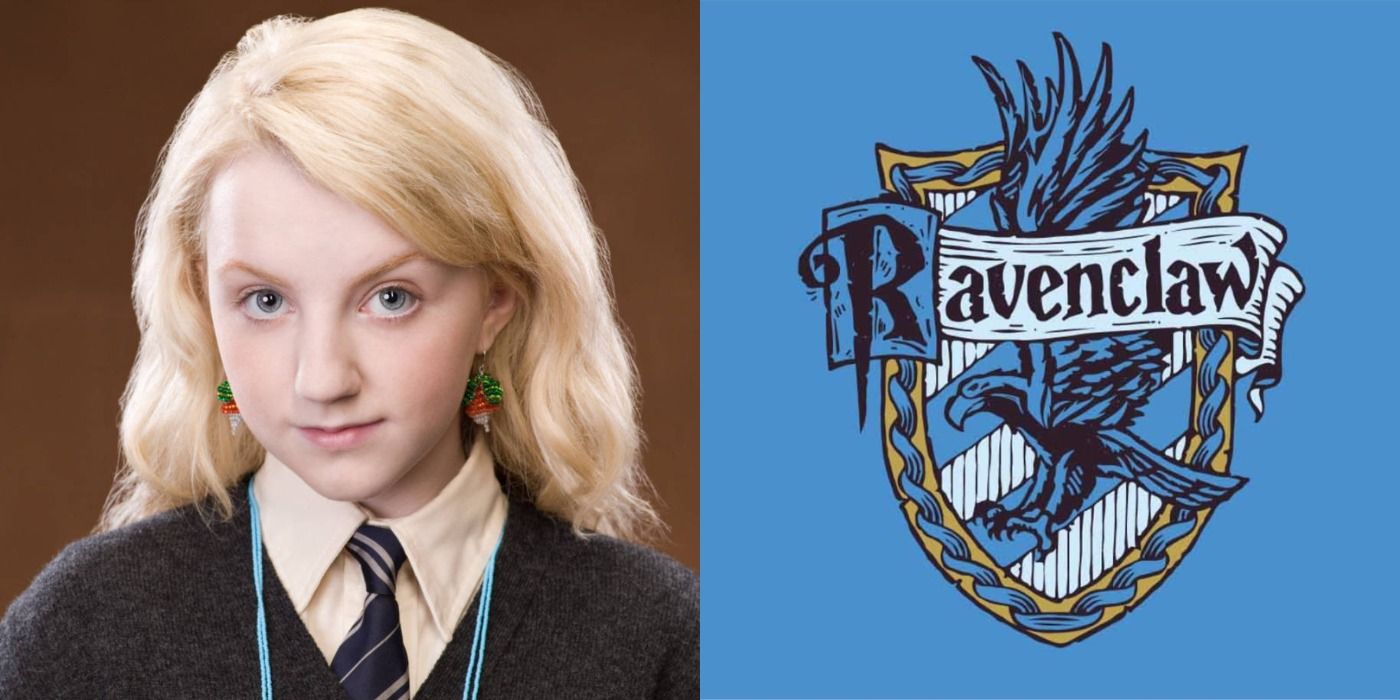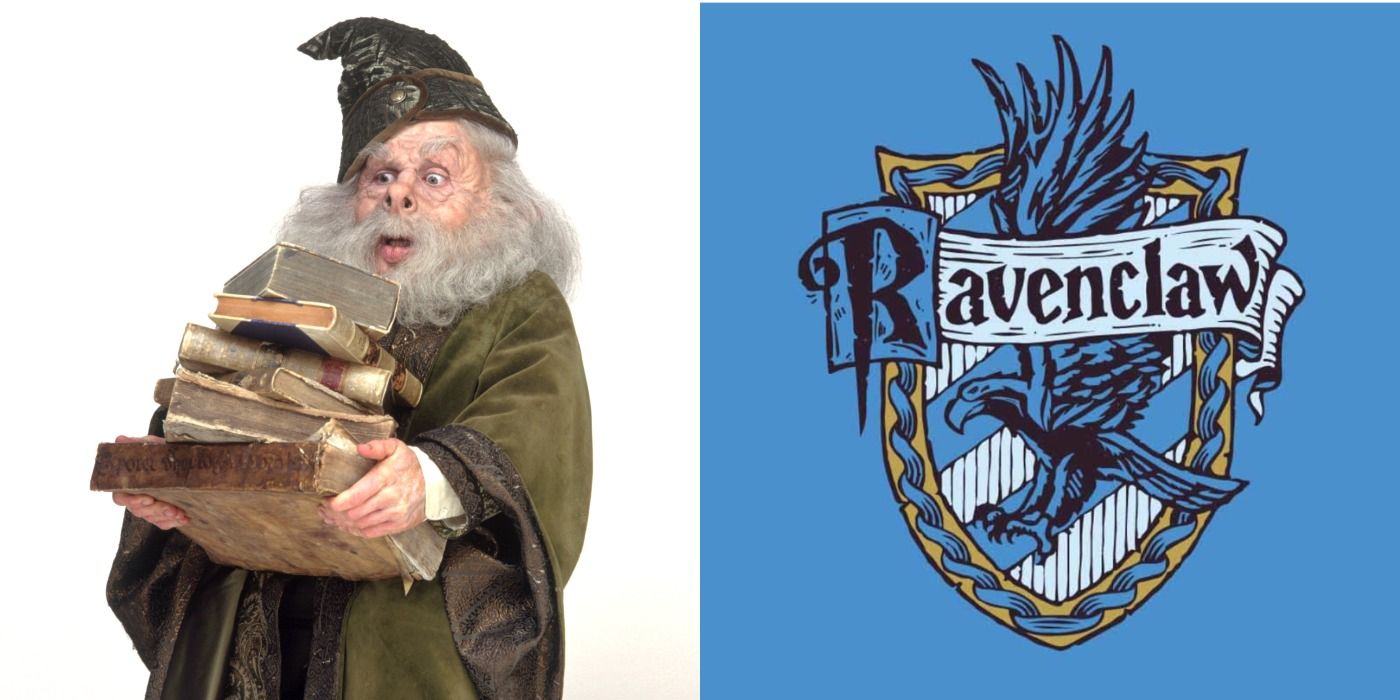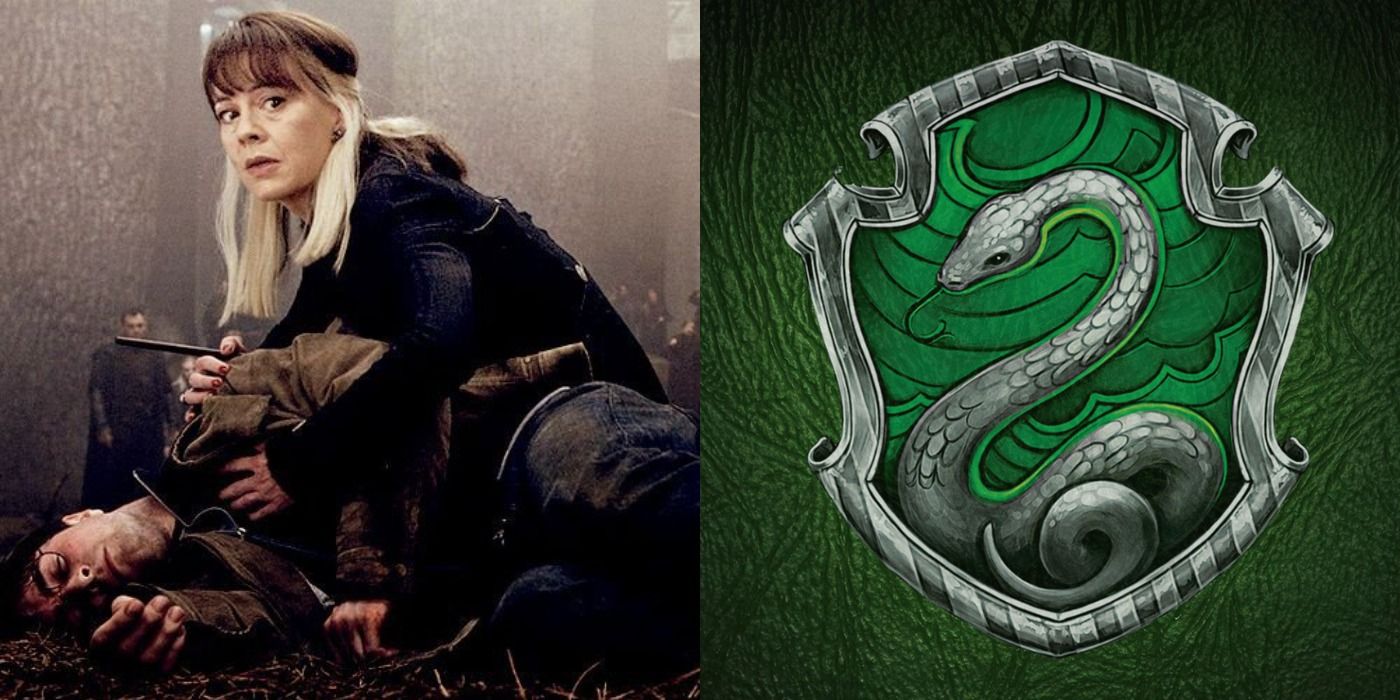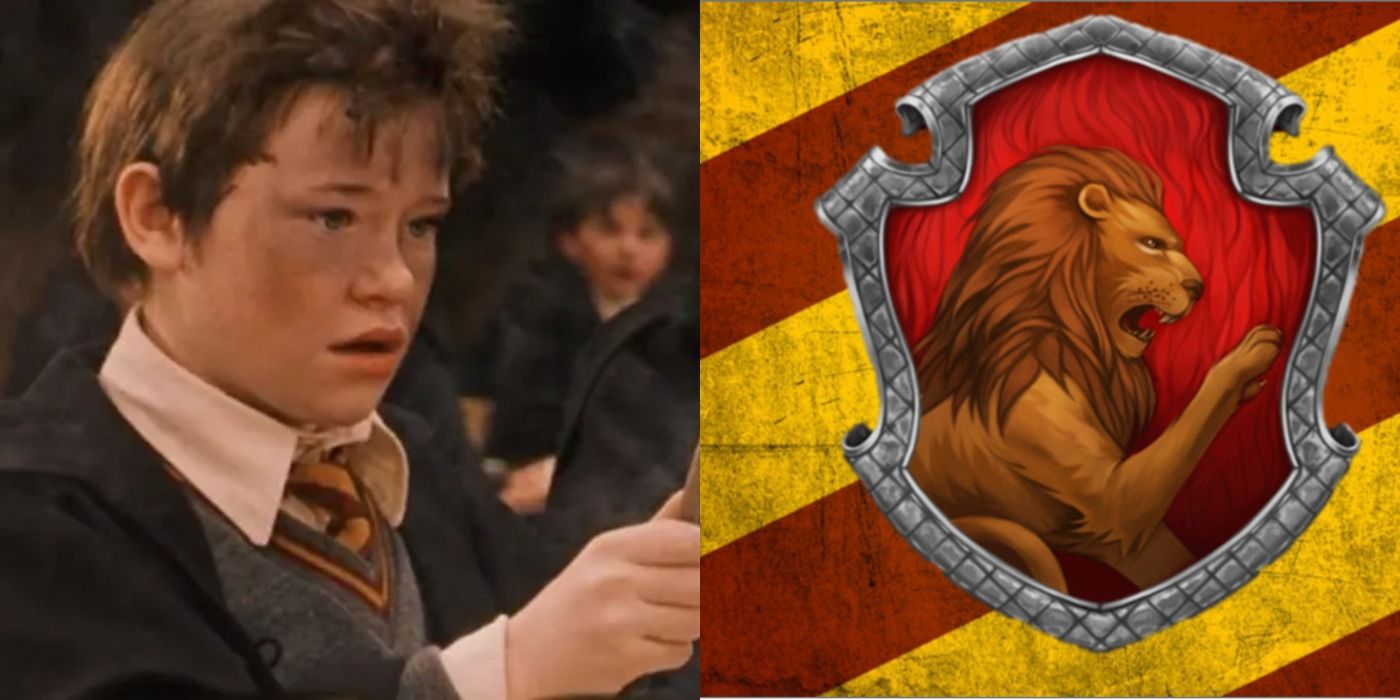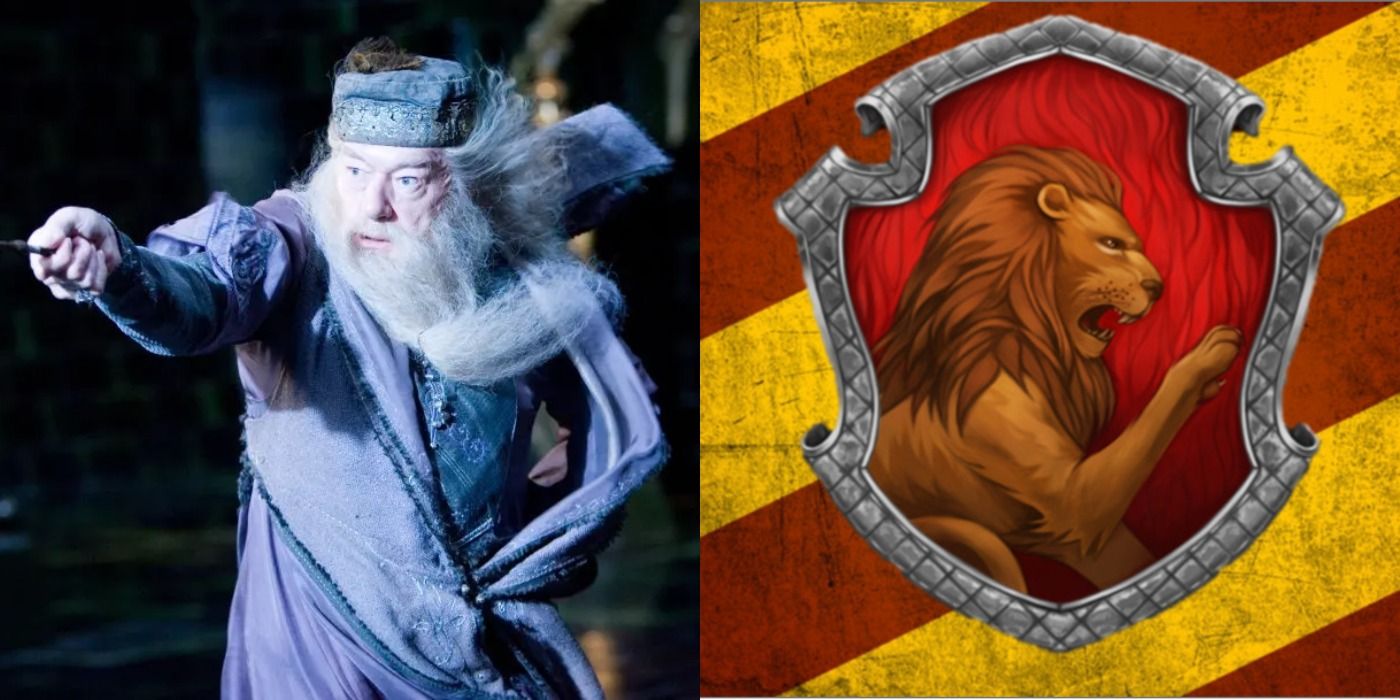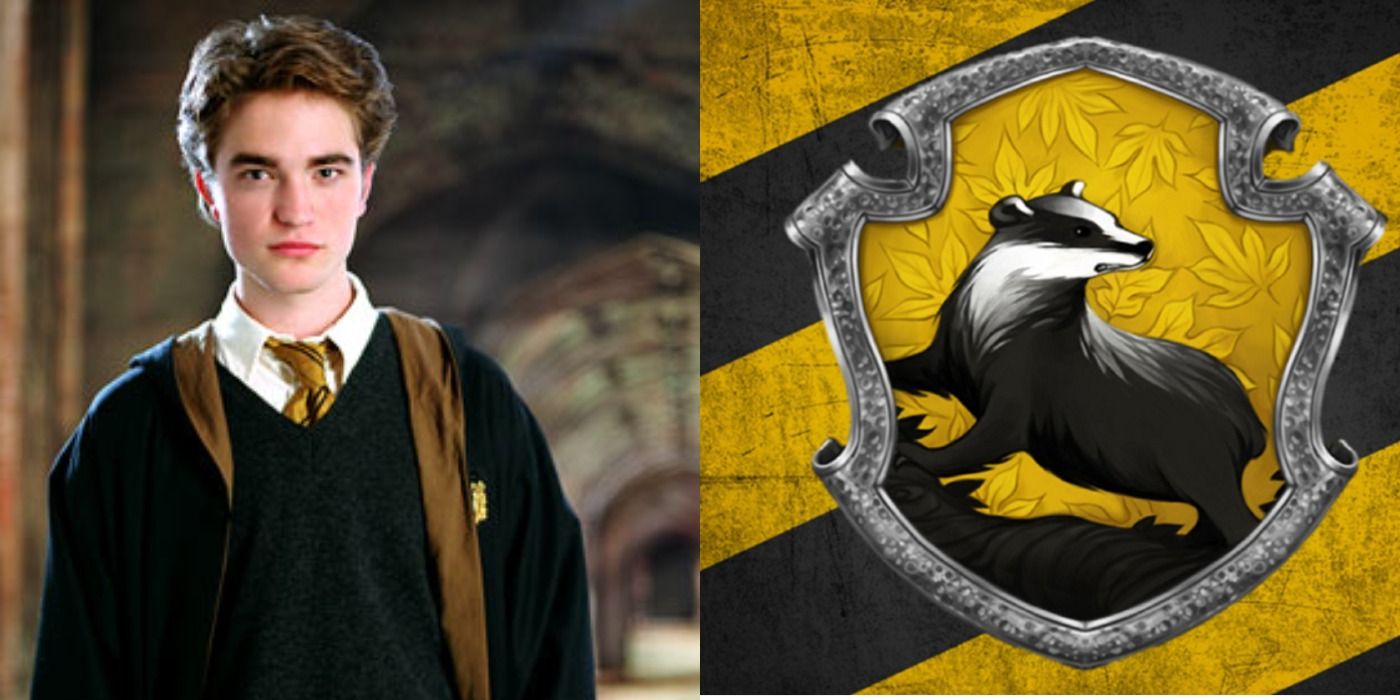These days, there are a million different personality tests out there that a person could use to define themselves and their personality. One of the more prominent systems at the moment is the Enneagram test, which breaks people down into one of nine personality types related to how they approach the world around them.
In addition to the Enneagram, there is always the old classic: the Harry Potter Hogwarts House. Hogwarts houses, in the broadest possible sense, can be broken down by a person's central traits: bravery, ambition, knowledge-seeking, and loyalty. For those who want to take as few tests as possible for as detailed of a personality analysis as possible, the Hogwarts houses can be mapped onto the Enneagram test based on each type's defined characteristics, hopes, and fears.
Type One: The Reformer — Ravenclaw
The Reformer type tends to be very perfectionistic, putting pressure on themselves to do everything right. They tend to be defined by a sense of self-control and strict adherence to rules. They fear imperfection because it will mean that they were unable to reach the impossible standard they have set for themselves.
This is sort of the textbook definition of a Ravenclaw. This is the type of person who acquires endless knowledge, though they do it more out of an adherence to standards than a curiosity for the world around them. They will tend to have good grades, detailed plans, and clean rooms. This can result in them looking down on others who do not do the same, which plays into the Ravenclaw stereotype of being elitist, but it also means they are a strong person to have around when something needs to be done right.
Type Two: The Helper — Hufflepuff
The Helper is exactly what it sounds like; they tend to be giving and people-pleasing, always wanting to be of service. Often, Helpers view themselves as empaths, seeing others' needs and catering to them. This is sometimes done out of a motivation of wanting to fit in or be liked, and out of a fear of being alone and unloved.
This personality style is the stereotypical helpful Hufflepuff, loyal to their friends and generally friendly to others. But ignore what everyone always says about Hufflepuffs being boring. There are definitely some notable Hufflepuffs with serious power of their own. Hufflepuffs are devoted to the people around them, and the lengths they will go to for them might shock people who just think of them as 'nice.'
Type Three: The Achiever — Slytherin
The Achiever type is defined by their ambition, so it shouldn't be any surprise which house they would likely find themselves in. They tend to be extremely driven and adaptable, capable of doing whatever needs to be done to achieve their goals. While this might seem self-serving, it often comes from insecurity, with Achievers fearing not being seen as valuable.
Slytherins also get a bad reputation, but ambition and cunning are not bad things. Everyone should keep in mind that Slytherin had its fair share of heroic characters too. Slytherins tend to view life in terms of value—who is valuable, who is not, and what positions in life are worth striving for. This is a very logical understanding of the world, if not an overly emotional one, and can lead to Slytherins being very successful and supporting the people they value most.
Type Four: The Individualist — Ravenclaw
The Individualist is a tricky Enneagram to sort, because they tend to defy categorization, often by their own will. They would be more likely to define themselves by a hybrid house like Slytherclaw or Gryffinpuff if given the choice, but their uniqueness is well-suited to the free exploration of Ravenclaw House. Individualists tend to be independent, wanting to experience authentic emotions and life experiences, which can lead to them over-investing in fantasy and imagination.
Ravenclaw house allows the freedom of investigation that other houses shun. Slytherins would likely not value those who could not conform, Gryffindors would struggle with their tendency toward being alone, and Hufflepuffs would question their withdrawn nature. While deeply unique characters like Luna were often shunned by their peers, they were accepted as they were by the Sorting Hat, who tended to put eccentric characters in Ravenclaw.
Type Five: The Investigator — Ravenclaw
The Investigator is stereotypically very brainy and independent, more comfortable with facts and information than they are with other people. This is the group that would easily test into Erudite in the Divergent universe. Investigators are often scared by the idea that social responsibilities will keep them from their work, which often leads them to isolate themselves from others.
This fits well into the Ravenclaw stereotype, though Investigators are more likely to have their noses stuck in a book in their room or in the corner of a room than they are to join big study groups like Reformers might. But don't let that be a concern! The Harry Potter franchise gave fans a number of likable, prominent Ravenclaws to look up to, those who tended toward social interactions and those who didn't.
Type Six: The Loyalist — Slytherin
The Loyalist is a little complicated and isn't quite what the name would imply. Loyalists are concerned with safety and security for themselves and those they care about, not with loyalty to others. They tend to come across as very responsible because their anxious mind has already played out everything that could go wrong and has planned for it.
Loyalists fit well into Slytherin because they are focused on using their cunning and skill to be prepared. Their greatest fear is being in danger without a plan of how to handle it, which ties in well with the shrewd nature of many Slytherins.
Type Seven: The Enthusiast — Gryffindor
The Enthusiast is the type of person who is always chasing their next adventure, looking for the things to keep them entertained. They tend to fear emotional pain and/or their own thoughts, so they keep themselves busy to keep those things at bay. Despite this insecurity being at their root, Enthusiasts tend to seem spontaneous and fun to be around.
This fits the general depiction of Gryffindors from the books and movies. Gryffindors value bravery and strength, so they value those who are willing to face crazy challenges, especially at their peers' request. While they may seem fun-loving, however, they do have deep-seated fears that they have to occasionally face that may be harder than jumping off a cliff or facing a dark wizard.
Type Eight: The Challenger — Gryffindor
The Challenger can be a strong force of good or a strong force of evil. They tend to be powerful, controlling types, pushing others to do their will and showing off their strength in a fight. They tend to be incredibly self-confident, and will always stand up for what they believe in. But because they fear powerlessness, they may go to extremes to keep control.
This fits well with Gryffindor, where the brave and strong go to grow and develop around like-minded people. But be careful with how far this can go! Gryffindor had been home to some evil characters over the course of the Harry Potter series, and indulging too much in dominating the competition can go too far.
Type Nine: The Peacemaker — Hufflepuff
The Peacemaker tends to be passive in situations of conflict, ready to look for compromises and ways to make a situation agreeable to those around them. They often let others make decisions, going along with them, but they are willing to fully dedicate themselves to their projects once they choose to.
Peacemakers make a lot of sense in Hufflepuff, where individuals will find the people they are loyal to and follow them into battle if necessary. They can be just as powerful as anyone else, but would rather have strong bonds with a leader than be in charge themselves.

